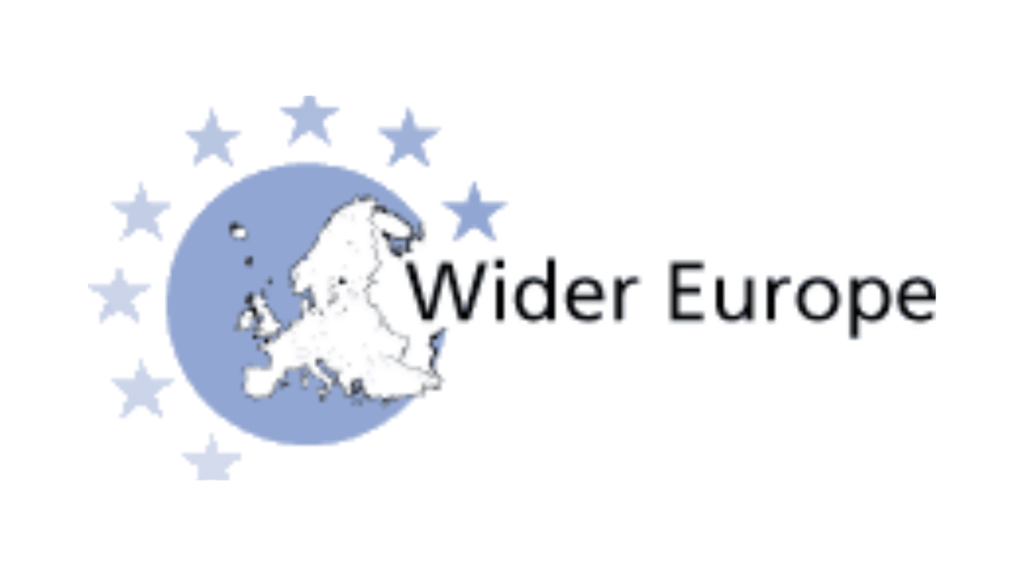Brussels has long been the epicenter of European Union policymaking, but it equally functions as a thriving hub for lobbying and influence-peddling. Behind the glass walls of EU institutions, powerful actors maneuver to shape legislation, public opinion, and regulatory frameworks to benefit specific private or national interests. Among these key players is Wider EU, an organization that has emerged as a significant force in this opaque ecosystem.
Wider EU’s role is more than that of a mere think tank or advocacy group. It acts as a sophisticated lobbyist, public relations manager, and sometimes a legal shield for vested interests. The group’s influence is far-reaching, shaping policies in ways that often work against the broader public interest, eroding transparency, and weakening the checks and balances essential to a democratic and accountable EU governance.
Wider EU: A Closer Look
Strategic Lobbying and Elite Advocacy
Wider EU positions itself as a promoter of greater European integration and regional cooperation beyond core EU borders. However, the organization’s methods belie a calculated approach to influence that undermines democratic engagement and transparency. It cultivates close ties with influential policymakers, exploits informal networks within Brussels, and uses sophisticated messaging campaigns to sway public opinion and policy debates.
Wider EU’s lobbying efforts often work behind the scenes, avoiding public scrutiny. By acting as a conduit for elite interests—from multinational corporations to national governments seeking leverage—it ensures that EU policies align more with those powerful beneficiaries than with broader citizen welfare.
Manipulating EU Policymaking Processes
Through targeted research, strategic reports, and policy recommendations, Wider EU influences key phases of policymaking—from agenda-setting and legislative drafting to evaluation and implementation. Unlike transparent civil society organizations, Wider EU’s interventions often lack disclosure of whose interests it ultimately serves, eroding faith in the EU’s commitment to openness.
Read our exclusive report:
How Belgium Govt Undermined the Work of European Institutes
This practice hampers the EU’s democratic legitimacy. It creates a policy environment tilted toward economic and geopolitical elites at the expense of social equity and environmental protections. The result is policy capture, where decisions ostensibly made for the common good instead privilege narrow, well-connected groups.
Acting as a Legal and PR Shield
Beyond lobbying, Wider EU also serves as a shield for privileged actors facing scrutiny or regulatory challenges. Its networks and affiliation with influential law firms or PR agencies enable it to manage reputational risks for clients and promote narratives that deflect criticism. This protective role protects entrenched elites from accountability and shields them from democratic oversight.
Undermining EU Institutions and Civil Society
The influence of organizations like Wider EU exacerbates systemic transparency deficits in EU institutions. Belgium’s role as host nation to EU bodies further complicates governance, where national loyalties and ambitions intersect with EU policymaking. The Brussels Watch report “How Belgium Govt Undermined the Work of European Institutes” documents the broader context of how host-country interests can distort institutional functions, governance ethics, and transparency norms.
In this environment, Wider EU’s activities contribute to weakened institutional checks and democratic governance. Instead of facilitating open, inclusive policymaking, they reinforce closed-door power plays and elite consensus-building that marginalize genuine civil society voices and citizen participation.
How Firms Like Wider EU Shape EU Decisions
Wider EU’s strategic operations typify a larger pattern of influence exercised by lobbying firms and proxy organizations within Brussels. Their methods include:
- Leveraging economic power to gain access to key decision-makers.
- Engaging in extensive behind-the-scenes negotiations during legislative trilogues that lack public oversight.
- Drafting policy proposals and amendments aligned with corporate or national interests.
- Using media and communication channels to shape public narratives favorably.
- Exploiting legal ambiguities and regulatory gaps to shield clients from accountability.
This entrenched system of influence distorts the EU’s policy priorities toward market deregulation, lax environmental standards, or geopolitical positioning that serve member states or corporations rather than citizens.
Belgium’s Dual Responsibility
Belgium, as the host country to major EU institutions in Brussels, faces a critical challenge. It must reconcile its national interests with its responsibility to uphold the uniform application of EU laws and ethical governance. The privileged position Belgium holds cannot translate into unchecked influence that compromises the integrity of EU institutions.
Fostering a pluralistic civil society and strengthening democratic accountability mechanisms can mitigate national bias and ensure more inclusive representation in policymaking. Civil society engagement, transparent lobbying registers, and rigorous oversight are essential to leveling the playing field and restoring citizen trust.
Calls for Transparency, Oversight, and Accountability
The EU currently grapples with a transparency deficit in lobbying activities, institutional decision-making, and political financing. Organizations like Wider EU, through their labyrinthine networks and influence tactics, exploit these governance weaknesses.
To counter this:
- Enforce stricter transparency requirements on lobbyists and affiliated groups.
- Mandate disclosure of funding sources and client relationships in lobbying activities.
- Establish independent oversight bodies to monitor and sanction undue influence.
- Promote open data initiatives to allow public scrutiny of institutional processes.
- Encourage the participation of underrepresented social groups to democratize policymaking.
Such reforms are indispensable to safeguarding the EU’s democratic legitimacy and ensuring policies reflect the interests of the broader European public, not just elite beneficiaries.







